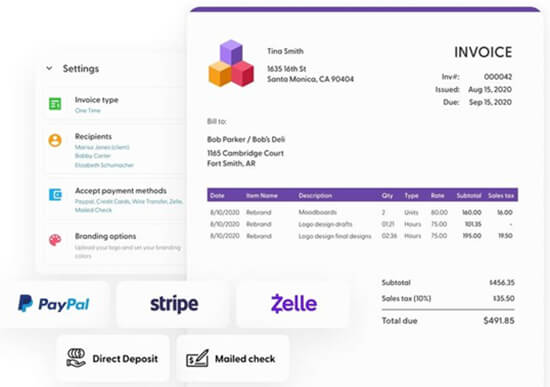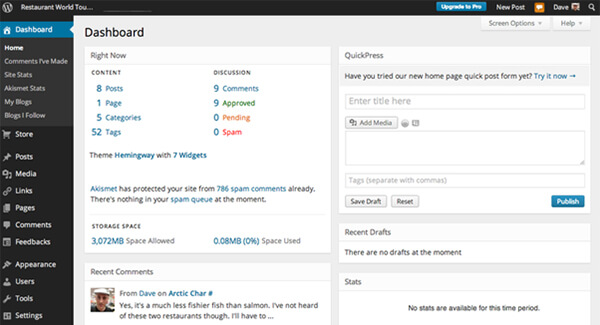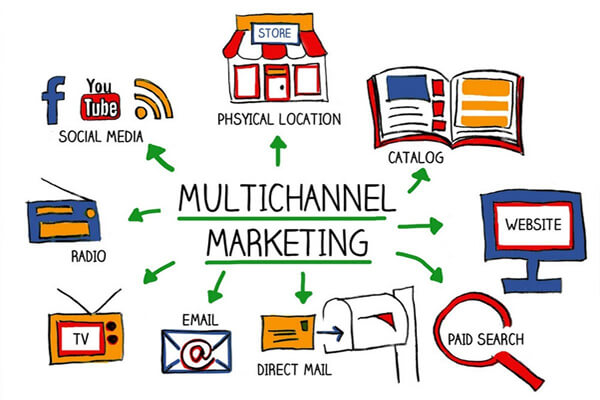How to Turn Freelancing
into a Successful Business
See also: Marketing for Freelancers
Freelancing is an increasingly popular work model for many today. Due to the gig economy and companies that streamline operations, freelance work is becoming easier to find. If you’ve been doing well as a freelancer, it may be time to consider starting a business venture.
As a freelancer, you’ll ultimately be somewhat limited in the scope of your operations. Because of this, your income may eventually plateau. To break the barrier, you need to scale things up. Don’t be misled by the term “freelancing” mentioned here. The crux of the matter is that freelancing often differs from a full-blown business operation.
You must plan things carefully if you're interested in tuning your freelancing into a successful business.
1. Develop Your Business Framework
The first step to building a successful business is knowing your goals. You need to commit to the idea that you want this to be your full-time job, not just a side hustle. Knowing your strengths and weaknesses will help you determine how much time you should spend on each task and what tasks need help from someone else.
For example, if you know that customer service is not your strong suit, but customer feedback is essential for improving products, hire someone else who can handle those conversations. At the same time, you focus on product development and marketing.
In addition, freelancers who are new at running their businesses, or who haven't been in charge of other employees' salaries before (or even their own), need to learn about salaries in their industry so they can pay themselves appropriately without going broke.
2. Use the Right Tools

Managing invoicing and payments seamlessly is essential to any business.
Once you expand beyond simple freelancing, things start to grow in scope rapidly. You’ll need to cope with more clients, new business dimensions, and a growing pool of employees who need management and administrative support.
To do this, you will need to use the right tools:
A CRM (customer relationship management) tool helps you keep track of everything related to your clients and their projects. It also allows you to store all their information in one place so that when they call or email, they can easily get the answers they need quickly and easily.
Project Management Tools often help software developers who want a simple way of managing their projects efficiently without having a complex system. You can use these tools to create plans and timelines for each project in order, if necessary, plus keep track of progress with reports on each stage of development during every project lifecycle phase from inception through completion.
-
Office management systems can give smaller businesses a big boost. Several platforms are available that can help with everything from time tracking for employees to automated invoicing and collections systems. For freelancers scaling up into business operations, detailed invoice management becomes essential. Using a professional services invoice template not only simplifies the billing process but also establishes credibility and ensures consistency in financial documents. These all-in-one options are often much cheaper and easier to use than dedicated solutions.
Better security products will help give better assurance to clients, especially those who need to entrust you with sensitive information for projects—offering secure storage space or communication channels, for example.
3. Build Credibility

Choose easy-to-use solutions like WordPress that lower the impact of missing skill sets.
The problem with credibility is that it can grow incredibly slowly if you don’t amplify the effects. Completing assignments perfectly is excellent for your credibility, but it doesn’t push the effect past an immediate client.
What you need to succeed as a business is to let the world know of your accomplishments and overall reliability. There are several ways you can do this, not all of which are external. To build the business credibility, you can:
-
Build a website. This is the first step to building your brand and establishing yourself as an expert in your field. Suppose you don't have the time or money to create your business website? Use WordPress or Squarespace for easily customizable websites that look professional without spending hours on coding and design maintenance.
Build a portfolio of work that showcases your skill set and experience. It doesn't matter if it's only five pieces; make sure they're good! The more polished and well-designed this portfolio is, the better impression prospective clients will have of you when they see it first-hand (or click through).
Be honest about whether you're doing good work—and be able to say so publicly if necessary—but also learn how to accept criticism graciously when others disagree with you on this point (or any other). Your ability to do so will go far toward building trust within communities and networks where other freelancers might share their opinions freely but not always kindly among one another.
4. Identify Your Most Profitable Services
Freelancers often take on as many jobs as possible. How much each pays is less a concern than getting work. However, businesses need to optimize earnings to stay profitable. You need to determine which services bring in more money than others and then focus on them.
For example, if writing articles for clients is one of your primary services, but no one's paying much, it might be time to start considering different ways you can use your talents. You often won’t need to pivot too far off your path to choose something more optimal.
When identifying which service or service area is most profitable, think about what skills/talents/knowledge sets make up the bulk of your work (the things that come naturally). Then see if there are any unique areas where those skills are really valuable right now—and someone else out there doesn't have them yet.
If there aren't many businesses offering these specialized skill sets yet (and if they aren't very overly complex), then this could be the niche market where all future growth will come from as more businesses become aware of how vital these specialized skill sets actually are!
5. Build Your Team
Hiring freelancers, employees, and virtual assistants is not enough. You need a team to help you create the best website for your business. You need a team working with you to bring in new clients and customers.
This is the most challenging part of forming your new business since it lays the core foundation. If your initial team is weak, the company will likely be shaky when moving forward. Most importantly, your core team needs to be comprised of individuals you can trust.
Expanding your reach is one way to avoid being locked into a mediocre core team. Remote work is an excellent avenue to explore, especially given the current powerful communication tools that allow good collaboration and security.
6. Ramp Up Marketing Efforts

Digital has opened a world of new marketing options for businesses to explore.
The next step is to ramp up the marketing side of your business. Your marketing efforts should take various forms, including social media posts and emails, video content, content marketing (like blog posts), search engine optimization (SEO), pay-per-click advertising, social media advertising, and influencer marketing.
As a business, you have the opportunity to choose your marketing channels. One of the best ways to grow your business is by diversifying your marketing efforts and using online tools that allow you to reach new clients on multiple platforms.
Here are some examples:
-
Social media platforms like Facebook and Twitter help you build an audience. You can use these networks to share content with potential clients and engage with them over time so they know who you are when it comes time for them to hire someone for their project.
Email newsletters are another way of reaching out directly from your website or blog (or both). This gives readers an alternative way of interacting with you beyond just clicking on links in social media posts that lead back here again.
Conclusion
When moving from freelancer to a business, it's essential to understand your evolving role. From a producer, you need to become a handyman versed in finance, marketing, and more. It’s a challenging role and one that requires good balance for success.
Finally, never forget the bedrock of any good business. Set yourself up with enough income, so you don't have to worry about money all the time. This means figuring out exactly how much each client brings in and then pricing accordingly.
If it takes too long for one client to pay off another one, then there's no way that your business will survive long-term.

About the Author
Jason Chow is a marketer at WebRevenue, a company that helps online businesses to thrive with tailored solutions. Jason loves to write about remote workforce, communication skills, SaaS, and more.

